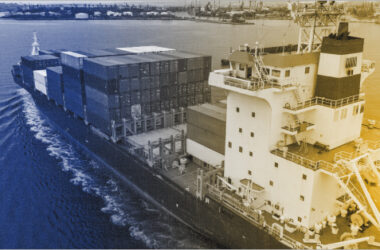Shipping goods across India and internationally involves inherent risks. Marine Single Transit Insurance is a crucial investment to safeguard your valuable cargo. However, with various insurers and policy options available, choosing the right transit insurance coverage can feel overwhelming. This blog will guide you through buying a single transit policy for your business in India, ensuring you make informed decisions and protect your shipments effectively.
Steps to Buy Marine Single Transit Insurance
Single Transit Insurance is a specialised form of Marine Insurance designed to cover goods being transported via a single journey. This insurance policy applies to all modes of transport—sea, air, rail, and road—and provides protection against risks such as theft, damage, or loss of goods during transit. Unlike comprehensive Marine Insurance policies that cover multiple trips or periods,Single Transit Insurance caters to businesses that require transit insurance coverage for one-off or infrequent shipments, or for high-risk or high-value shipments.
Here’s a detailed step-by-step guide to purchasing Marine Single Transit Insurance for your business in India:
1. Assess Your Business Needs
Before buying Single Transit Insurance, clearly define your requirements:
- Type of Goods: What kind of goods are you transporting? Are they high-value items, fragile, or perishable?
- Mode of Transport: Are the goods being shipped by road, rail, sea, or air? Note that Marine Insurance primarily covers sea transport, but modern policies often extend coverage to other modes as well.
- Transit Route: Is it a domestic or international shipment?
- Risk Factors: Consider potential risks such as theft, accidents, or natural disasters based on the transit route.
Having a clear understanding of your needs ensures you choose a policy tailored to your business.
2. Research and Select an Insurance Provider
Choosing the right insurer is crucial. Evaluate transit insurance policy providers based on:
- Reputation: Look for providers with a strong track record and positive customer reviews.
- Claim Settlement Ratio: Opt for an insurer with a high claim settlement ratio, indicating reliability in honouring marine insurance claims.
- Coverage Options: Ensure the provider offers customisable transit insurance policies for single transit requirements.
- Customer Support: Check for responsive and supportive customer service.
- Regulatory Compliance: Ensure that the insurer is registered with the Insurance Regulatory and Development Authority of India (IRDAI), which regulates and ensures consumer protection in the Indian insurance market.
3. Understand the Single Transit Insurance Coverage and Exclusions
Single Transit Insurance typically covers:
- Natural Calamities (e.g., storms, floods). Certain natural disasters like earthquakes may require specific coverage extensions.
- Accidental Damage (e.g., vehicle accidents or sinking of a vessel).
- Theft and pilferage during transit (though partial theft might require additional coverage).
- Loading and Unloading Risks.
However, exclusions in this Marine Insurance might include:
- Damages due to inadequate packaging.
- Losses resulting from gross negligence or intentional damage.
- Delays, unless explicitly covered.
Read the Marine Insurance Policy document thoroughly to understand what is covered and excluded. Clarify any doubts with the transit insurance policy provider before proceeding.
4. Request and Compare Insurance Policy Quotes
Contact multiple insurers to get quotes for your shipment. Provide the following details for accurate single transit policy quotes:
- Description of the goods being transported.
- Value of the goods (invoice value).
- Mode of transport (e.g., road, air, sea).
- Origin and destination points.
- Transit duration.
- Any risk assessments, including packaging details.
Compare single transit policy quotes not just on price but also on:
- Extent of Marine Insurance coverage.
- Deductibles (out-of-pocket costs before a Marine Insurance claim gets initiated).
- Additional benefits (e.g., risk assessments, pre-shipment surveys).
5. Negotiate the Single Transit Insurance Policy Terms
Once you have shortlisted an insurer, discuss the terms of the single transit policy:
- Coverage Extensions: If necessary, include single transit policy coverage extensions for risks like riots, strikes, or specific geographic perils.
- Premium Discounts: While discounts are generally not available for Single Transit Insurance policies, businesses with regular shipping needs can explore options for long-term or annual marine cargo insurance policies for better cost efficiency.
- Add-Ons: Consider additional services like on-site surveys or expedited Marine Insurance claims processing for added peace of mind.
6. Purchase the Insurance Policy
After finalising the insurer and terms, proceed to purchase the single transit policy. Ensure that:
- The insurance policy document specifies all agreed-upon coverage details.
- The description of goods, their values, and the transit details are accurate.
- The premium is paid and you receive a copy of the single transit policy document immediately.
7. Keep the Necessary Documents Ready
Maintain a record of the following documents for future reference and Marine Insurance claims processing:
- Policy Document: The official insurance policy issued by the insurer.
- Goods Invoice: A detailed invoice showing the value of goods.
- Bill of Lading: A receipt issued by the carrier acknowledging the shipment of goods by your business.
- Packing List: A document listing the contents of the shipment.
These documents will be crucial in case you need to file a Marine Insurance claim.
8. Monitor the Transit Process
While the goods are in transit, stay informed about their status. In case of any incident (damage, theft, or loss), notify the insurer immediately. Prompt communication ensures a smoother Marine Insurance claims process.
9. Understand the Single Transit Insurance Claims Process
In the unfortunate event of a loss or damage, follow these steps to file a Single Transit Insurance claim:
- Notify the insurer about the incident as soon as possible.
- Submit the required documents, including the single transit policy document, goods invoice, and damage report.
- Provide photographs or evidence of the damage if applicable.
- Cooperate with the surveyor appointed by the insurer for inspection.
A clear understanding of the claims process ensures faster resolution and reimbursement.
10. Evaluate and Review Regularly
Marine Single Transit Insurance policies are specific to each shipment. After completing a shipment, evaluate the coverage and service provided. If your business begins shipping goods more frequently, consider switching to an annual marine cargo insurance policy for better cost efficiency and continuous coverage.
Why Your Business Needs Marine Single Transit Insurance
Here’s why your business needs marine single transit insurance:
1. Protection Against Unforeseen Risks
Transportation involves various risks, including:
- Natural Calamities: Floods, storms, and earthquakes can damage your goods in transit.
- Accidents: Road, rail, air, or sea accidents can result in significant losses.
- Theft or Pilferage: Goods in transit are vulnerable to theft or partial loss.
Marine Single Transit Insurance ensures you don’t bear the financial burden of such incidents alone, covering the cost of lost or damaged goods.
2. Affordable Coverage for Occasional Shipments
If your business doesn’t frequently ship goods, purchasing an annual insurance policy might be unnecessary or expensive. Single Transit Insurance provides a cost-effective solution for businesses that:
- Ship goods sporadically.
- Require insurance only for specific high-value shipments.
By paying a premium for a single journey, you save costs while ensuring adequate protection.
3. Covers All Modes of Transport
India’s diverse geography requires businesses to rely on various modes of transport, such as:
- Road and Rail: For intra-city or inter-state shipments.
- Sea and Air: For international or long-distance domestic shipments.
Marine Single Transit Insurance covers goods transported by any mode, making it suitable for businesses with varied shipping needs.
4. Safeguards Against Operational Disruptions
Losing a shipment can have a ripple effect on your business:
- Financial Loss: Replacement of goods or compensating a buyer can strain your finances.
- Reputation Damage: Frequent losses without insurance may tarnish your credibility with clients.
- Delayed Deliveries: Uninsured losses can disrupt operations, leading to penalties or lost business opportunities.
Having insurance ensures that such disruptions are minimised, as claims help recover the financial losses swiftly.
5. Flexibility for Customisation
Single Transit Insurance is highly customisable to suit your specific requirements, including:
- Coverage for high-value or perishable goods.
- Extensions for specific risks like riots, strikes, or terrorism.
- Policies tailored to unique shipping routes or cargo types.
This flexibility ensures you pay only for what your business needs, optimising costs and coverage.
6. Peace of Mind
Running a business in India comes with enough challenges without worrying about the safety of your goods during transit. Marine Single Transit Insurance provides peace of mind by:
- Eliminating uncertainties in transportation.
- Ensuring financial stability even in worst-case scenarios.
- Allowing you to focus on core business activities without stress.
Final Thoughts:
Marine Single Transit Insurance is a crucial investment for businesses involved in the transportation of goods. By carefully assessing your needs, choosing the right insurer, and understanding the coverage and terms, you can ensure your business is well-protected against unforeseen risks. The process may seem complex initially, but with proper planning and research, you can secure the right policy that offers peace of mind and financial security for your business operations.
Take the first step today by evaluating your shipping requirements and exploring your options for Marine Single Transit Insurance in India. The safety of your cargo and the continuity of your business are worth the effort.








